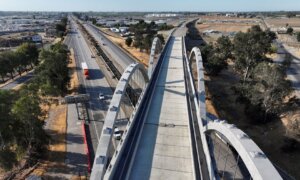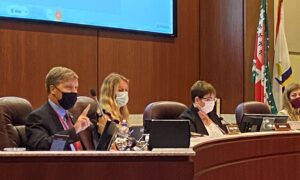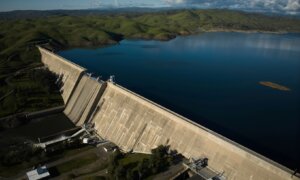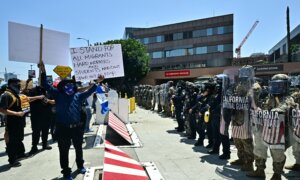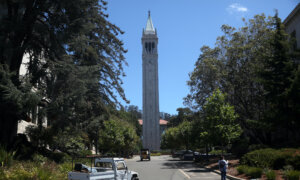The Port of San Francisco has detailed far-reaching plans to renovate the historic Fisherman’s Wharf, a key tourist destination in the city that has yet to recover from COVID-19 pandemic shutdowns.
As part of the Fisherman’s Wharf Forward initiative, the Port Commission on June 10 also unanimously approved a contract for Silverado Contractors to demolish buildings deemed untenable, including one that long housed Alioto’s Restaurant, a 99-year-old Sicilian seafood restaurant, which will cost the city up to $3.5 million.
The Wharf has suffered from a significant loss of foot traffic over the last two years, and any foot traffic that it does receive is diverted by illegal vendors who line the sidewalks, according to business owners who welcomed the $10 million investment by the city.
“This is not the easy path, this is not the path that the Board has traveled in the past,” Assistant Port Director Michael Martin told commissioners at the meeting. “This is really being intentional and intervening at a time where we feel the Fisherman’s Wharf needs to move toward its next generation of entertaining locals and visitors.”
The project’s first phase is scheduled to be finished by summer 2026. The renovation will include a dock for fishing boats, areas to buy fish and crab fresh off the boat, a new public plaza at the former location of Alioto’s Restaurant, as well as a new overlook on Al Scoma Way.
New restaurants are scheduled to open at Fisherman’s Wharf ahead of renovations, including a Salvadoran restaurant, Chasca Rio, planned to open in the old location of Pompei’s Grotto by the end of the year. Everett & Jones barbeque will replace Lou’s Fish Shack, which was located at 300 Jefferson Street.
The renovations are part of the Port of San Francisco’s 75-year plan, ending in the year 2100, which entails strengthening seawalls, ensuring buildings are flood-proof, adding seismic protections, as well as modernized retail and public spaces.
All-in-all, the revitalization is expected to cost $10 million, an investment that many business owners welcome.
“We’re thrilled to see the Port investing in these on-the-ground improvements that directly support foot traffic and economic activity,” Taryn Hoppe, a Fisherman’s Wharf business owner and board chair of the Fisherman’s Wharf Community Benefit District, said at the June 10 meeting. “It’s a win-win for everyone, including our beloved visitors.”
In 2020, the Port released the Embarcadero Seawall Multi-Hazard Risk Assessment (MHRA), which revealed that the buildings on Taylor Street are vulnerable to seismic activity. In 2018, the City’s voters passed a general obligation bond to assess and repair flood and earthquake risks along the 7.5-mile shoreline for which the Port is responsible.
“The MHRA further noted that the older, timber-pile-supported structures in Fisherman’s Wharf have a high earthquake risk compounded by unstable soils along the shoreline,” the report states.
Pile-supported buildings, such as the entirety of Taylor Street, house small businesses and workers.
“While these buildings are still safe to occupy on an ongoing basis from a building code perspective, these structures are vulnerable to strong ground shaking and the lateral spreading expected if a moderate to large earthquake were to take place,” according to the report.
The COVID-19 shutdown left the Port unable to lease vacant restaurant spaces and reactivate the area.
The Wharf neighborhood attracted more than 10 million people in 2024, making it the most visited destination in San Francisco, according to Placer.ai.
The Fisherman’s Wharf Forward’s goal is to bring new businesses and visitors to the historic landmark.
Over the past five years, the Port has invested in a modern floating dock along Al Scoma Way for fresh fish sales and San Francisco Bay excursions and relocated the SkyStar Observation Wheel to the Wharf.
Other initiatives spearheaded by the Port of San Francisco include a 2024 vote to approve a rent relief program for the city’s crab and salmon processors, most of which are small family-owned businesses.
“The local salmon and Dungeness crab seasons have been severely compromised in recent years due to environmental challenges such as the increased presence of whales along the Pacific Coast, the impacts of drought, and the lingering economic impacts of the coronavirus pandemic,” the Port said in a statement.


